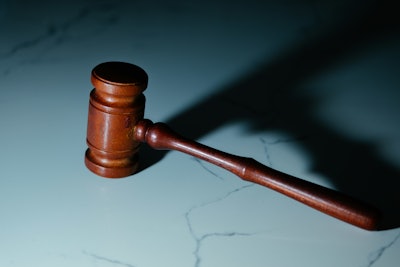
High school athletes in North Carolina can now profit off their name, image and likeness after an order requiring the State Board of Education to adopt the proposed permanent rules for NIL was signed into effect on Oct. 14.
As reported by North State Journal, Wake County Superior Court Judge Graham Shirley made the decision Oct. 1 to reverse the State Board of Education’s ban on high school NIL, which went into effect in July.
The ruling concerned the lawsuit filed in August by the family of Grimsley High School quarterback Faizon Brandon, the Tennessee commit and the No. 1 recruit in the class of 2026, over the State Board of Education’s NIL ban. The lawsuit against the board and the Department of Public Instruction alleged the board overstepped its authority with the ban, and the lawsuit sought a preliminary injunction to allow high school athletes to take part in NIL activities.
The proposed permanent rules that the board sent to public comment earlier this fall will be applied to all public schools in North Carolina, including all member schools of the North Carolina High School Athletic Association (which includes four private schools). Students at private schools in the North Carolina Independent Schools Athletic Association have been allowed to engage in NIL activities since July, Asheebo Rojas of the North State Journal reported.
Related: Mother of 2026 QB Recruit Suing State of North Carolina Over NIL Restrictions
According to the rules, compensation in an NIL agreement cannot be based on the quality or extent of a student’s athletic performance, and the promise of an NIL deal cannot be used to recruit a student to a specific school or a specific sport. Students under the age of 18 must have a parent or legal guardian as a party to the NIL agreement, and NIL agreements must hold the school district and its employees, the NCHSAA and its employees and the State Board of Education and the Department of Public Instruction and their employees harmless from any liability.
Prior to a student’s entry into an NIL agreement, students must provide a copy of the agreement to their school’s principal and athletic director. The local superintendent, the chairperson of the local board of education and the head coach of any sport in which the student participates must have access to the agreement, too.
Students — and their parents or legal guardian if they’re younger than 18 — must also complete an NIL education course offered by the National Federation of State High School Associations and provide a certificate of completion to the NCHSAA before entering an agreement.
Without making references to the school district, the school, the conference, the NCHSAA or the NFHS, students may enter agreements to use their NIL in the following ways: public appearances or commercials, autograph signings, athletic camps and clinics, sale of non-fungible tokens, product or service endorsements and promotional activities, including in-person and social media advertisements, per Rojas.
Students cannot use their NIL to promote adult establishments and entertainment services, alcohol products, tobacco and other nicotine products, cannabis products, controlled substances, prescription pharmaceuticals, weapons, casinos or gambling and “activities that would disrupt the operations of a school.”

































